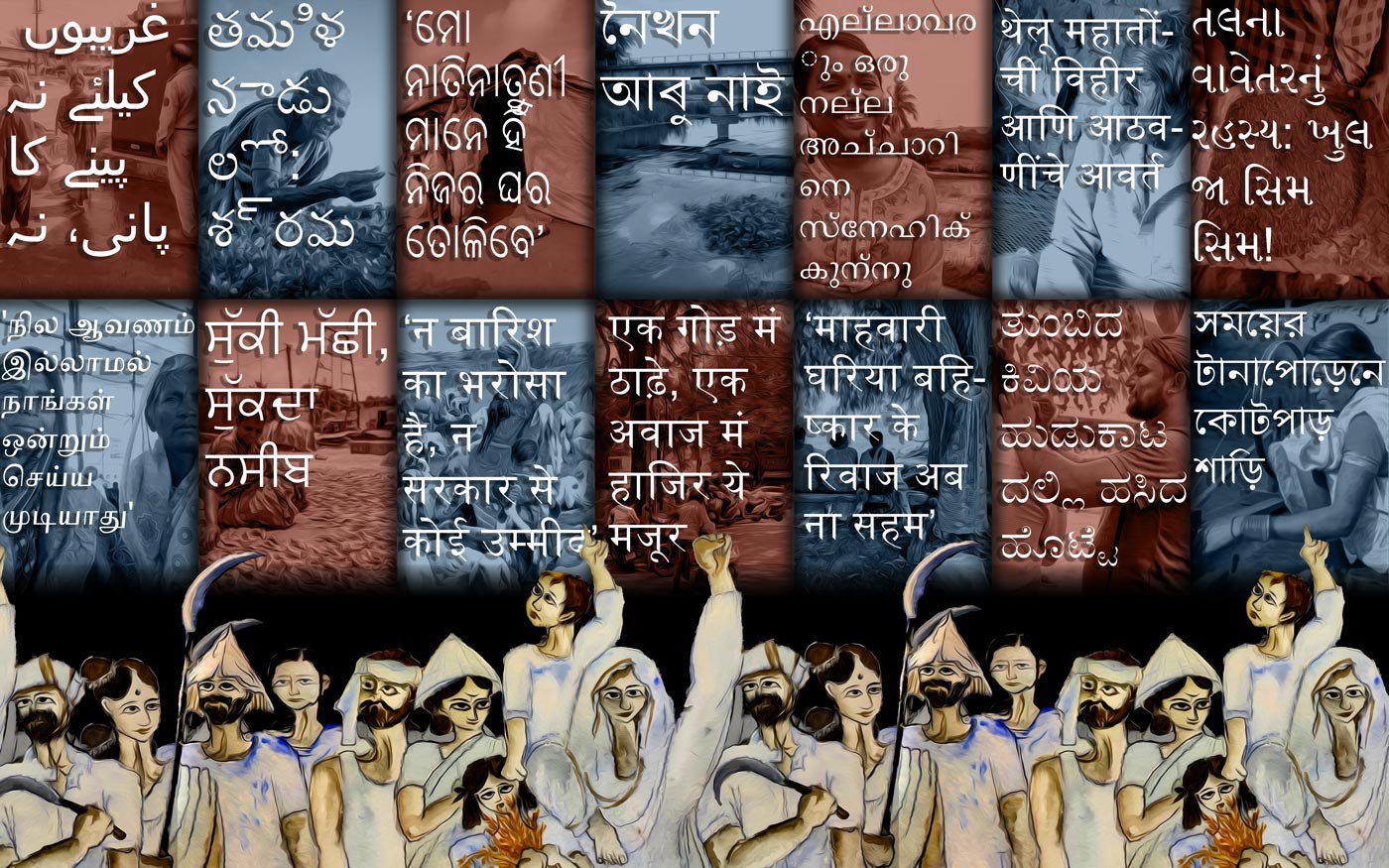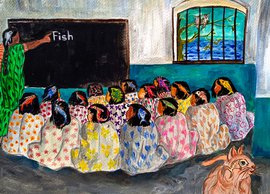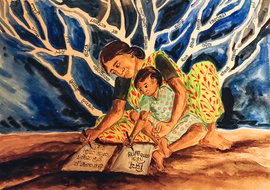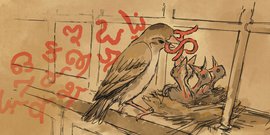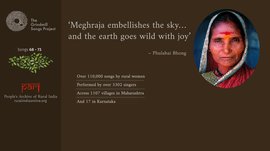On December 7, 2023, Refaat Alareer, our fellow translator, poet, writer, academic, columnist and activist from Palestine was killed in a targeted bombing in the ongoing genocide in Gaza. But the day his voice was silenced, a poem he wrote resounded in more than a dozen languages across the world.
It is this world and in this period in time that we look back on our work and role in the universe of languages in PARI! And we begin by bringing to mind Refaat’s words:
Language is all we have to voice our struggle and to fight back. The words are our most valuable treasure that we ought to utilise in order to educate ourselves and educate others. And these words ought to be conveyed in as many languages as possible. I believe in a language that touches the hearts and minds of as many people as possible…Translation is the best thing that happened to humanity. Translation breaks barriers and builds bridges and creates understanding. But “bad” translations could also create misunderstandings.
It is this belief in translation’s ability to bring people together, to build new understanding that is at the heart of PARIBhasha’s work.
And 2023 has been a significant year for us.
We added two new languages – Chhattisgarhi and Bhojpuri – bringing the number to 14 Indian languages in which PARI is published.
This year is also special because we got our name, PARIBhasha, highlighting our role beyond translation of English content to covering everything that we do make PARI a truly multilingual platform of rural journalism.
We have continued to explore the role of tongues and languages in the lives of everyday people of our country. Through stories and conversations around translation and languages, we position PARI’s work in this space.
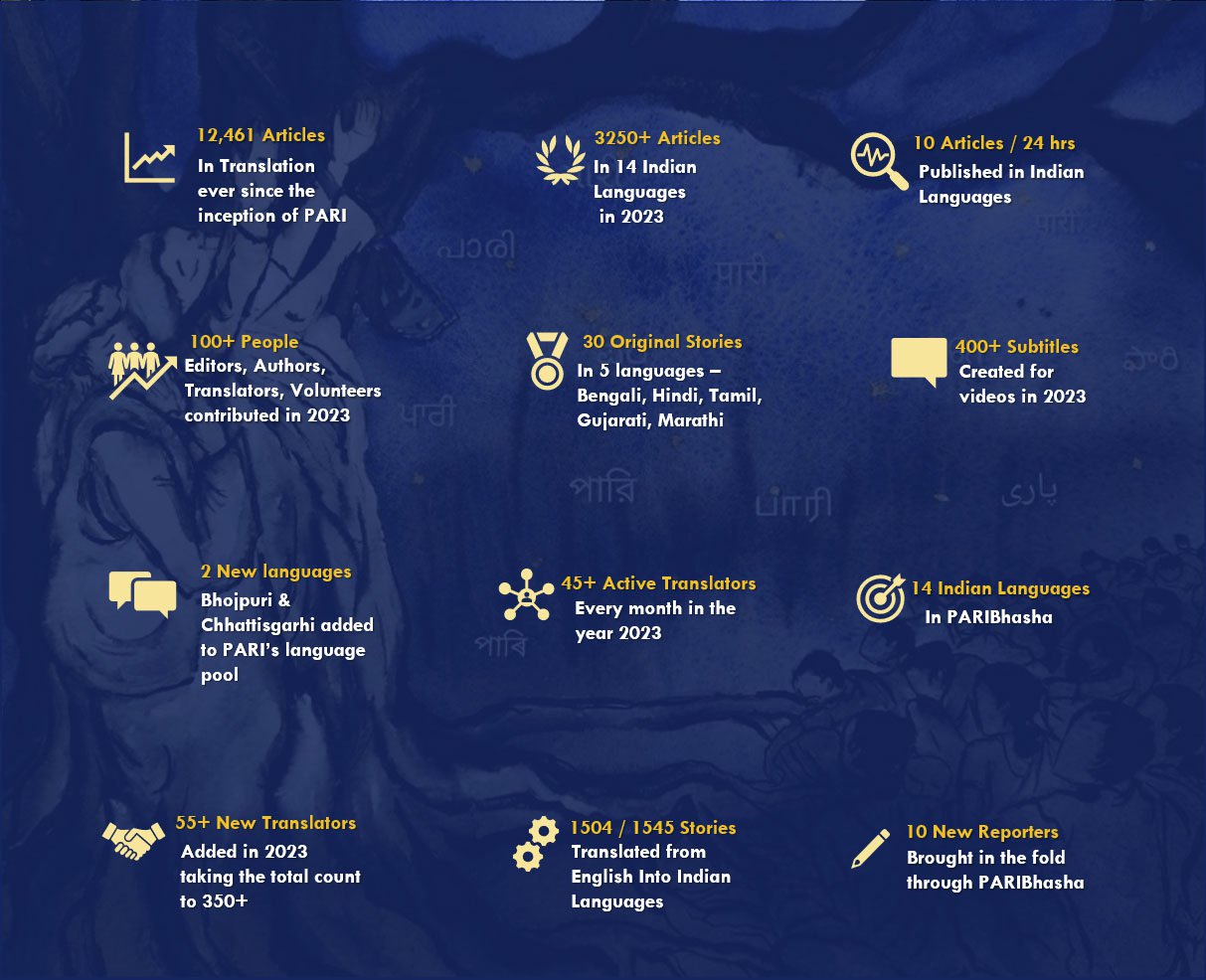
Looking back at what PARIBhasha achieved in terms of numbers in the year 2023
With better systems and coordination between different teams in PARI, we could make the stories in our languages as correct and accurate as possible, and keep pace with the increased work – publishing more stories than ever in Indian languages every week! Audio files for non-English words, pdfs with photos for making captions accurate – were necessary steps, adding new dimensions to our translations and usage of language. Our aim has always been to minimise the gaps as we bring an article alive in a new language, sitting at our desks, thrice removed from action and the source of origin.
PARIBhsha also supports with accurate English translation of people’s words in their voices. Reviewing subtitles of a film or quotes used in the story and local words/references in Indian languages has lent authenticity to people’s voices in English by retaining their distinct flavour and correct idiom.
Good and timely translations, priority to the location language and the increase in readership of digital content available in languages other than English, have given traction to our translated stories and have made material impact on the ground.
The Bangla version of Women beedi workers’ health: up in smoke by Smita Khator ঔদাসীন্যের ধোঁয়াশায় মহিলা বিড়ি শ্রমিকদের স্বাস্থ্য was circulated widely, eventually resulting in an increase in wages for the workers. Similarly, In Jaisalmer: gone with the windmills by Priti David with an accompanying video by Urja and its Hindi translation जैसलमेर: पवनचक्कियों की बलि चढ़ते ओरण , by Prabhat Milind was used at the protest by locals and led to the state returning ‘wasteland’ to the commons (oran) in Degray. These are just a few examples.
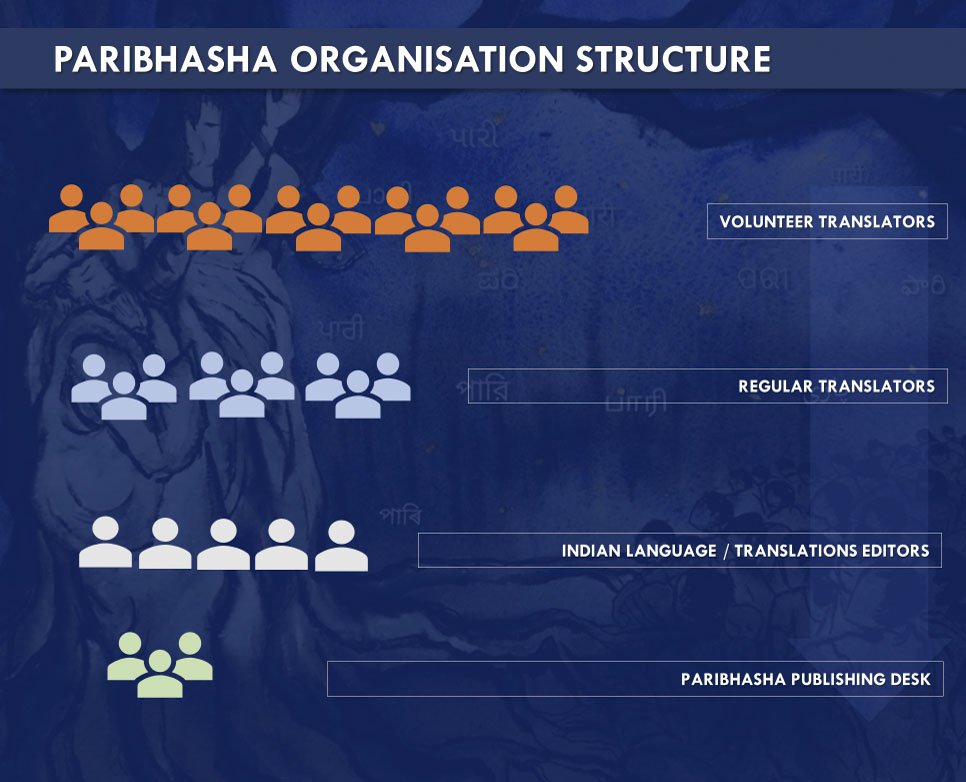
Standing against the global trend of stark increase in the usage of AI based tools for translation and language programmes, PARI remained steadfast in its commitment to involve more people in each tier of PARIBhasha’s organisational structure. Year 2023 saw a significant increase in the number of people from diverse social and spatial locations now involved with the PARIBhasha team
Many PARI translations have been republished by regional rural portals and print spaces such as Bhumika, Matruka, Ganashakti, Desh Hitaishi, PrajaVani. Miloon Saryajani, a Marathi monthly, dedicated to women’s questions, published an introductory piece on PARI in January 2023 and will be carrying Marathi translations of PARI stories focusing on women’s issues in the coming years.
PARIBhasha has been able to carve a niche for itself in the translation field because of its sustained and sensitive approach to work. It has offered insights and support to various organisations and institutions in creating multilingual spaces using different Indian languages.
From ‘PARI translations’ to ‘PARIBhasha’
This year we have started commissioning and sourcing original content in Indian languages and doing primary edit in the original language before the final edit in English. We aim to build our capacities so that stories reported in Indian languages are edited in the source language and the final version is translated into English. And many strides were taken in this direction as well with some of the bilingual language editors working in two languages simultaneously.
Many reporters worked with PARIBhasha to bring their stories/creative pieces or films on PARI: Jitendra Vasava, Jitendra Maid, Umesh Solanki, Umesh Ray, Vajesinh Pargi, Keshav Waghmare, Jaysing Chavan, Tarpan Sarkar, Himadri Mukherjee, Sayan Sarkar, Labani Jangi, Rahul Singh, Shishir Agarwal, Prakash Ransing, Savika Abbas, Wahidur Rahman, Arshdeep Arshi.
PARI Education team, in collaboration with PARIBhasha, have been publishing original student stories in Indian languages. Young reporters from non-English backgrounds are writing in their choice of language, assured of learning the skills of reporting and documentation with PARI. Translations of these stories take them to wider audiences.
The Odiya team of PARIBhasha played a significant role in translation of the unique archive of paintings by Adivasi children on PARI. The project was reported in Odiya language.
PARI has gained solid ground in curating and showcasing repositories such as Grindmill Songs from Maharashtra and Kutchi songs from Gujarat. Many groups including news portals and NGOs have approached PARI for contributions and collaborations in regional languages.
PARIBhasha commits itself to make PARI a people’s archive in people’s languages. And the coming years will see more efforts towards this goal.
Cover design: Rickin Sanklecha
If the work we do interests you and you would like to contribute to PARI, please write to us at [email protected] . We welcome freelance and independent writers, reporters, photographers, film makers, translators, editors, illustrators and researchers to work with us.
PARI is a not-for-profit and we rely on donations from people who appreciate our multilingual online journal and archive. If you would like to contribute to PARI please click on DONATE .